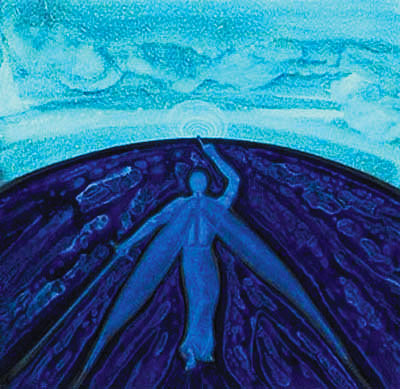Robed in the Sea
“And as he prayed, the appearance of his countenance was altered, and his clothing was white and glistening.” (Luke 9:29, King James 2000 Bible)
The Tabernacle was covered in three layers: linen, red-dyed ramskin, and a third layer of tachash. What’s tachash? The word is a mystery, and there have been many suggestions concerning its meaning, from unicorn to dolphin. But perhaps that mystery has now been solved. And the glistening solution is nothing like you’d imagine in a million years.
This post has been slain and resurrected for inclusion in my 2015 book of essays, Inquietude.
You must be logged in to see the rest of this post.
Join now for a year for $15!



























October 31st, 2013 at 5:18 am
Howdy Mike,
Since I read Robert Fyall’s ‘Now My Eyes Have Seeen You,’ I’ve understood Leviathan in Job 41 to be representative of Satan. Chapter 41 might be summarized as God telling Job that the powers behind Death and Evil (or Behemoth and Leviathan, or Mot and Satan) are under His control. No matter how fierce he is, Satan is God’s Satan.
What is God saying to Job, though, if Leviathan is representative of a righteous Eve? What does a triumphant Bride clothed in the skin of the vanquished serpent have to do with God’s speech in Job 40-41 and Job’s response in Job 42?
Thanks,
Aaron
October 31st, 2013 at 6:56 am
Good question, Aaron. Yes, Leviathan at the end matches Satan at the beginning, and between them we have Job’s accusers as a “nest of snakes.”
I think the dragon and the bride are linked (they both appear together in the center “Day 4″ of the Revelation, for instance). Each is a corporate (“incarnate”?) outcome of Adam’s response to the Law. If faithless, the serpent gets his legs back and becomes a dragon – a devouring state. If faithful, the serpent’s seed is cut off and righteous seed becomes a holy host on earth. So it’s all about offspring (physical in the OT and spiritual in the NT). It’s Babylon versus Jerusalem. I don’t think Job gets that far explicitly, but he does receive a double “Covenant” inheritance at the end of the book, including offspring, a future in history, and is vindicated before his enemies, the satans.
November 3rd, 2013 at 9:01 am
Right on. Thanks for clearing that up. I misread your alternative framework (had Adam been faithful) as an explanation of what is actually going on in Job 41. As for the stalwart Bride, great point. Job 41:12-17 sounds a lot like the end of Romans 8.